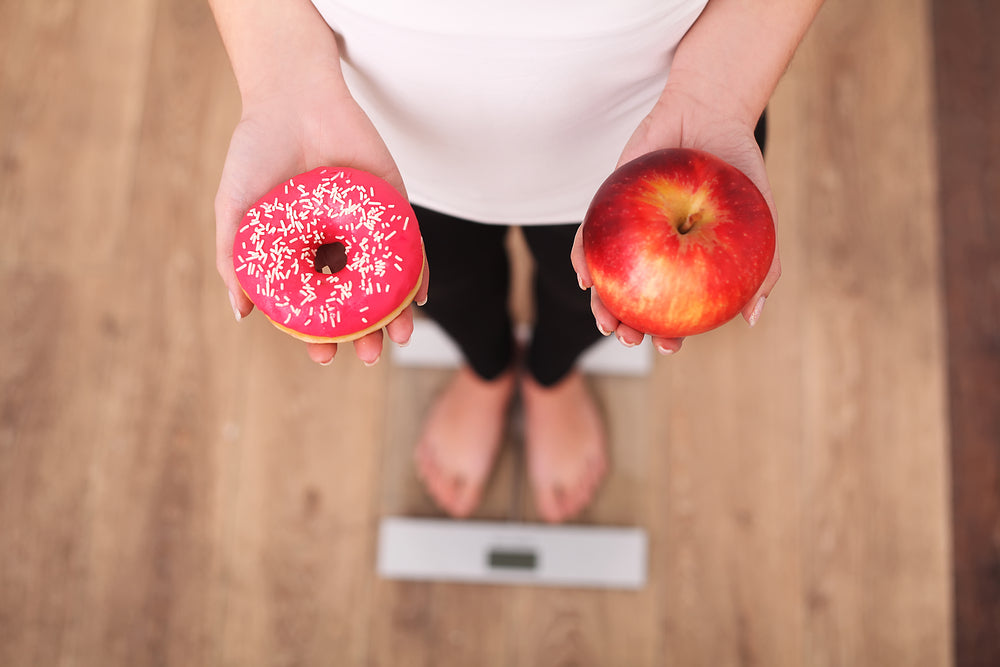You ever find yourself wanting to munch on something even after you already had your meal? I have had massive cravings, especially for snacks like chips, candy, cake, and ice cream, and it’s torturous.
We all know it’s bad to eat foods high in sugar, high in fat, and foods that are processed, but I know when I crave something, I have to have it, and I get it.
What usually happens after the matter is I feel guilty and want to change that bad habit. Here are some ways you can help curb those evil cravings in between your meals.
1. Fight Stress
Stress may induce food cravings and influence eating behaviors, especially for women. Women under stress have been shown to eat significantly more calories and experience more cravings than non-stressed women.
Furthermore, stress raises your blood levels of cortisol, a hormone that can make you gain weight, especially in the stomach area.
Living in the world we do today, stress is not easy to avoid. There’s traffic, bad people, work, health problems, family problems, and the list goes on. Try to minimize stress in your environment by planning ahead, meditating, and generally slowing down when you’re feeling overwhelmed.
2. Drink Lots of Water
Thirst is often confused with hunger or food cravings.
If you feel a sudden urge for a specific food, try drinking a large glass of water and wait a few minutes.
You may find that the craving fades away because your body was actually just thirsty. If the urge doesn’t subside, try eating a handful of nuts and wait for another 15 minutes.
Furthermore, drinking plenty of water may have many health benefits. In middle-aged and older people, drinking water before meals can reduce appetite and help with weight loss.

3. Eat More Protein
Adding one protein to breakfast could help improve satiety. Aside from meats like chicken, fish, and lean beef, try incorporating eggs, protein shakes, greek yogurt, peanut butter, quinoa, cottage cheese, and broccoli into your meals.
4. Eat Proper Meals
Hunger and a lack of key nutrients can both cause certain cravings.
Therefore, it’s important to eat proper meals at mealtimes so that your body gets the nutrients it needs and you won’t get extremely hungry right after eating.
Think meals with lean protein, whole grains, fiber, and nutrient-rich foods like fruits and vegetables.

5. Avoid Your Triggers
“You crave what you eat, so if you switch what you’re eating, you can weaken your old cravings and strengthen new ones,” says Marcia Pelchat, PhD, of the Monell Center.
This can happen pretty fast. For five days, her study volunteers drank bland dietary-supplement beverages. During that time, they craved fewer of their trigger foods. By the end of the study, the volunteers actually wanted the supplements instead.
The first few days are always the hardest, and you probably can’t completely eliminate your old cravings. But the longer you avoid your trigger foods, the less likely you may be to want them.
In fact, you’ll probably begin to crave the foods you eat, a real bonus if you’ve switched to fresh fruit.
6. Collect Your Candy Wrappers
Instead of throwing away a wrapper after you indulge in something sweet, keep it in a jar. It’ll help you be more aware of how much you’re eating. Guilt tripping yourself isn’t always a bad thing.

7. Get Enough Sleep
Your appetite is largely affected by hormones that fluctuate throughout the day. Sleep deprivation disrupts the fluctuations and may lead to poor appetite regulation and strong cravings.
Sleep-deprived people are up to 55 percent more likely to become obese, compared to people who get enough sleep.
For this reason, getting good sleep may be one of the most powerful ways to prevent cravings from showing up. Is your brain strong enough to handle these mind tricks? Let us know!

 Log in
Log in
